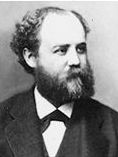A DIAGNOSIS of a marked case of mental aberration, is comparatively easy, but in the court as in the camp, when life or liberty is threatened, the deceptions practiced are often so ingenious as to defy detection.
No one cause is more perplexing to jury or more insidiously applied by the lawyers than this:- An attempt to prove the accused of temporary or permanent mental disease. An alibi, if it is to be successful, must be so conclusive that few ever dare to bring it into court and when circumstantial evidence points with bloody finger and seems to say, “That is the man,” the law must hold him, unless his witty lawyer can prove him to have been insane at the time. To prevent deception on the one hand and to shield irresponsible parties on the other, is the high duty of the physician in court. His honor is, or should be above the bribe, above the law, above all, with no motive but the conscientious decision. ” Is the prisoner sane or insane?”
Quite recently it became my painful duty to decide whether or not a certain individual, receiving aid from a beneficiary society, was insane or merely deceiving. Two prominent surgeons had pronounced him an imposter. I found him pacing his floor with an aimless tread, and as I entered, he greeted me with an insidious smile, which seemed to say, ” I know what you are after.” He was cross-questioned for an hour, his answers frequently contradictory, and yet a sane man might deceive thus much.
A second visit was made, when finding him in a melancholy humor, I sought to work on his feelings. “Mr….I am exceedingly sorry to see you suffer so. Isn’t there some medicine that I could give you help you? Your society is kind enough to help you? Your society is kind enough to help you pecuniarily, and I will volunteer my medical aid. Your pulse beats so regularly that I think your mental trouble might yield to proper treatment, if you ” he stopped short in his walk and eyed me with a glance so searching, that my blood chilled within me, but I never changed my assumed compassionate look, but continued, “if you will give me a history of your case, I’ll try what I can do for you, and I, m sure my report to the society will satisfy them and you.”
To great tears stood in his eyes and seizing my hand, he exclaimed, “My family shun me, the world too, have I found a friend in you? The last words were fairly hissed out and I felt very uncomfortable “Sit down, Mr…I ventured, “I am anxious to hear your case”. “Well, my friend” (emphasis on friend) “my wife’s sick-at least so they say, she won’t see me, won’t sleep with me-hasn’t for-for-I don’t know-certainly a long time. If I’d gone with some woman-ha-ha-that would have been wicked, but-” “But what,” I said: “Oh, there’s an end to everything, I’ve said enough” I was puzzled, was he a Hamlet or not? An idea struck me, as he paced the floor, a hand on either hip. “Does your back pain you as much as it did the other day?
“Incessantly, yes, ever since I lost my nature. “I suppose” I continued, “in your solitary life you found some handy way of allaying your sexual appetite? (The insane are often quick to appreciate a pun). He laughed and said, “Yes once a week or so.” Backache, trembling gait, stupid face, except when brightened by the fire of his passion, and an acknowledge onanist! “Wouldn’t shutting your eyes make your walking better, you’d see fewer of those visions… “I stagger like one drunk, in the dark! he interrupted. I was satisfied, Tabes Dorsalis and softening of the brain from Onanism. Sixth months afterwards, he was admitted to Kirkbride’s and placed in the ward of incurables.
Hahnemann, with incomparable astuteness, touched the very keynote, when he bid us treat the insane, as though they were not insane. By assuming a state harmonizing with that of my patient, opposing him in nothing, I gained what else might have been impossible.

